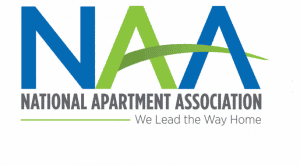CDC Shuts Courtroom Doors to Housing Providers
Rick Brown, et al. v. CDC
“As of January 2021, 1 in 5 renters reported being behind in monthly payments. Renters owed $57 billion in back rent, with a typical delinquent renter almost four months behind with a balance of $5,600, plus fees for late payments.”
Source: Moody’s Analytics
Sign me up to receive
updates on NCLA's
COVID-19 Legal Action
By signing this petition you agree that you are over 18 years of age. You agree to receive occasional emails from NCLA about campaigns and other issues on NCLALegal.org. You can unsubscribe at any time.
CDC’S Abuse of Power Leaves Property Owners Powerless
Plaintiffs in Rick Brown, et al. v. CDC
Rick Brown, Winchester, Virginia
 Rick Brown owns a residential property in Winchester, VA. He makes monthly mortgage payments of approximately $400 for the principal, interest and taxes. On April 1, 2017, Mr. Brown leased the property to a tenant, who agreed to pay monthly rent of $925. The lease automatically renewed several times and is currently in effect. But the tenant of Mr. Brown’s property has fallen behind on rent and claims to be unable to pay due to economic stress arising from the COVID-19 pandemic. To date, the tenant owes Mr. Brown over $9,995 in unpaid rent and has made no payments at all towards the rent for several months.
Rick Brown owns a residential property in Winchester, VA. He makes monthly mortgage payments of approximately $400 for the principal, interest and taxes. On April 1, 2017, Mr. Brown leased the property to a tenant, who agreed to pay monthly rent of $925. The lease automatically renewed several times and is currently in effect. But the tenant of Mr. Brown’s property has fallen behind on rent and claims to be unable to pay due to economic stress arising from the COVID-19 pandemic. To date, the tenant owes Mr. Brown over $9,995 in unpaid rent and has made no payments at all towards the rent for several months.
As a result, Mr. Brown is in the red. He’s suffered significant economic damages, including thousands of dollars in unpaid rent, as well as monthly maintenance costs, damages to his property and the lost opportunity to rent or use the property at fair market value of at least $925 per month. To make matters worse, it’s unlikely that he will obtain any economic relief or damages from the tenant once the CDC Order expires at the end of December 2020.
On August 18, 2020, Mr. Brown attempted to have the Winchester City Sheriff’s Department serve a five-day termination notice to the tenant. But to his surprise, the Winchester City Sheriff’s Department informed him that they would no longer issue and serve such notices in compliance with an eviction moratorium order issued by Virginia’s Supreme Court. The state level moratorium expired on September 7th in Virginia and was not extended. The CDCs order then kicked in and left him in the lurch until 2021. Now Mr. Brown is stuck providing a safe and habitable home for his tenant, while his tenant is entitled to live rent-free for the rest of the year. And if Mr. Brown ever fails in his end of the bargain, like if he lets the grass grow too high, his tenant can sue him in state court for damages.
Mr. Brown’s only hope in getting his own property back is pursuing legal action against the CDC order in a lawsuit pending before the U.S. District Court for the Northern District of Georgia. NCLA represents Mr. Brown.
David Krausz, Columbia, South Carolina
 David Krausz owns a residential property in Columbia, SC, which he leased to a tenant for a monthly rent of $700. Mr. Krausz’s tenant fell behind on rent in July 2020 and owes over $2,265 in unpaid rent. Under South Carolina law Mr. Krausz is entitled to seek an eviction for nonpayment of rent.
David Krausz owns a residential property in Columbia, SC, which he leased to a tenant for a monthly rent of $700. Mr. Krausz’s tenant fell behind on rent in July 2020 and owes over $2,265 in unpaid rent. Under South Carolina law Mr. Krausz is entitled to seek an eviction for nonpayment of rent.
On July 7, 2020, Mr. Krausz filed an application for ejectment to initiate the legal eviction process under South Carolina law. Mr. Krausz’s tenant requested a hearing, which was held on July 30, 2020. At the hearing Mr. Krausz and his tenant entered into a consent agreement where the tenant would have 4 days to pay $700 towards past due rent, and then was required to pay an additional $2,265 in unpaid rent by August 31, 2020. The tenant agreed to waive her right to an additional hearing. If the tenant breached the agreement, which was accepted by the court, then Mr. Krausz was entitled to request the court issue a writ of ejectment immediately without any further hearings on the matter.
Mr. Krausz’s tenant paid $700 for July’s rent as agreed but failed to pay any portion of the outstanding $2,265. On September 11, 2020 Mr. Krausz requested service of a writ of ejectment from the magistrate court, which is a process by which a sheriff evicts a tenant under South Carolina law. The writ was granted, and the Richland County South Carolina Sheriff’s Department scheduled an eviction of Mr. Krausz’s tenant for September 21, 2020. On September 16, 2020, Mr. Krausz’s tenant provided the South Carolina court with a declaration consistent with the CDC Order, declaring that the tenant was unable to pay rent because of economic stress arising from the COVID-19 pandemic, had used best efforts to obtain available government assistance and was using best efforts to make timely partial payments that are as close to the full payment as possible, had no other home to go to, and was making less than $99,000 annually. The South Carolina court then immediately stayed the eviction.
Mr. Krausz has maintained his property in compliance with all legal obligations as a landlord, and his tenant has no defense for her nonpayment of rent. Mr. Krausz is entitled to regain possession of his property under South Carolina law, but because of the CDC Order, Mr. Krausz has incurred significant economic damages, including approximately $2,265 in unpaid rent and fees, as well as monthly maintenance costs, damages to his property and the lost opportunity to rent or use the property at fair market value of at least $700 per month. The tenant appears to be insolvent, and Mr. Krausz will likely not be able to obtain any economic relief or damages from her. Mr. Krausz’s only opportunity to mitigate loss will be from ousting the tenant who is in wrongful possession of the premises and renting the property to another tenant.
Just like Mr. Brown, Mr. Krausz is now stuck in a one-sided rental agreement. He must provide housing, for free, to his tenant until at least 2021, but remains liable for any damages should he make a wrong move.
Mr. Krausz is pursuing legal action against the CDC order in a lawsuit pending before the U.S. District Court for the Northern District of Georgia. NCLA represents Mr. Krausz
Sonya Jones, Jesup, GA
 Ms. Sonya Jones owns a residential property in Jesup, GA. Ms. Jones leased the property to a tenant for a monthly rent of $450. Ms. Jones has a currently effective lease agreement with her tenant. But her tenant has fallen behind on rent and now owes more than $1,800 in unpaid rent. The tenant also owes additional late fees. Under Georgia law, Ms. Jones is entitled to seek an eviction for nonpayment of rent.
Ms. Sonya Jones owns a residential property in Jesup, GA. Ms. Jones leased the property to a tenant for a monthly rent of $450. Ms. Jones has a currently effective lease agreement with her tenant. But her tenant has fallen behind on rent and now owes more than $1,800 in unpaid rent. The tenant also owes additional late fees. Under Georgia law, Ms. Jones is entitled to seek an eviction for nonpayment of rent.
On August 24, 2020 Ms. Jones filed and served a dispossessory affidavit on her tenant consistent with Georgia law, which directed her tenant to vacate the property. Ms. Jones’ tenant requested a hearing, which was held on September 8, 2020. That was the first business day following the effective date of CDC’s order. At the hearing, Ms. Jones’s tenant said that his challenge to the eviction was related to the COVID-19 pandemic, and the court continued all proceedings until January 2021 in purported compliance with CDC’s eviction moratorium order.
Based on information provided to Ms. Jones by her tenant, and the tenant’s representations in court, Ms. Jones’s tenant is a “covered person” as defined by the CDC order.
But Ms. Jones, on the other hand, is not covered under CDC’s order. In fact, because of the CDC order, Ms. Jones has incurred significant economic damages, including more than $1,800 in unpaid rent and fees, as well as monthly maintenance costs, damages to the property and the lost opportunity to rent or use the property at fair market value of at least $450 per month. The tenant is also insolvent, and Ms. Jones will likely be unable to obtain any economic relief or damages from him. Ms. Jones’ only opportunity to mitigate her loss will be from ousting the tenant who is in wrongful possession of the premises and renting the property to another tenant.
Ms. Jones has maintained her property in compliance with all legal obligations as a landlord, and the tenant has no defense for his nonpayment of rent. She is also entitled to regain possession of the property under Georgia law. But Ms. Jones is trapped in her lease agreement, having now been made financially responsible for her tenant through the end of the year.
Ms. Jones is pursuing legal action against the CDC order in a lawsuit pending before the U.S. District Court for the Northern District of Georgia. NCLA represents Ms. Jones.
National Apartment Association
 NAA is a trade association for owners and managers of rental housing that is comprised of 157 state and local affiliated apartment associations, and over 85,485 members managing more than 10 million rental units throughout the United States. NAA has members in all 50 states.
NAA is a trade association for owners and managers of rental housing that is comprised of 157 state and local affiliated apartment associations, and over 85,485 members managing more than 10 million rental units throughout the United States. NAA has members in all 50 states.
NAA’s thousands of members face hardships from the CDC Order across the country. In every state NAA’s members have tenants who refuse to pay rent for months on end. Ordinarily, NAA’s members would be able to get their own property back, so that it could be used to provide housing for someone else. But those same tenants who refuse to pay, have now invoked the CDC Order and declared an unqualified right to free housing through the end of the year. In some instances, tenants who had been making partial payments simply stopped when the CDC issued the Order. In other instances, property owners who cannot carry the cost of providing unlimited free housing have been forced to sell their properties at a staggering loss—which results in the tenants being evicted anyway. The consequences to the availability of affordable housing will be devastating to people across the country. With fewer property owners able to earn a living, and with tenants refusing to leave properties where they don’t pay rent, the houses available for those that do pay their fair share will become fewer and more expensive.
Because of these consequences, NAA is trying to protect its members by pursuing legal action against the CDC order in a lawsuit pending before the U.S. District Court for the Northern District of Georgia. NCLA represents NAA.


